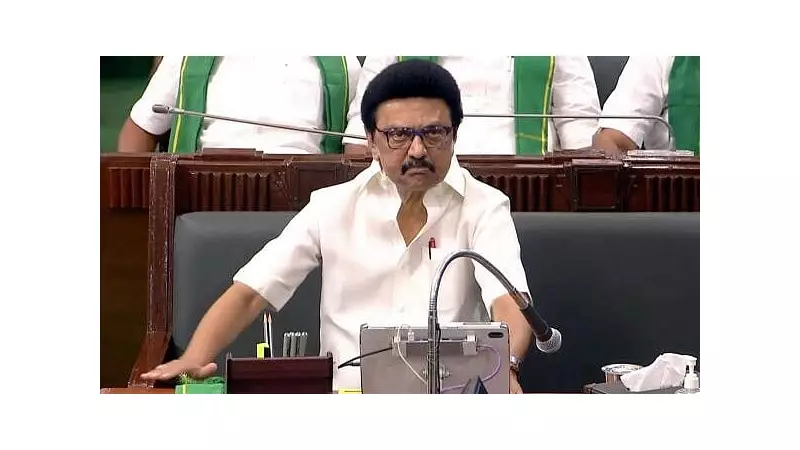
Tamil Nadu Chief Minister M.K. Stalin has launched a blistering attack on Prime Minister Narendra Modi, accusing him of engaging in hate politics and questioning whether he has the courage to directly address the people of Tamil Nadu during the ongoing election campaign.
The DMK president's strong remarks came during a public meeting in Salem, where he sharply criticized the Prime Minister's political strategy and approach towards the southern state.
Stalin's Direct Challenge to PM Modi
"Does the Prime Minister have the courage to come to Tamil Nadu and speak directly to the people?" Stalin questioned, highlighting what he described as Modi's avoidance of direct engagement with Tamil voters. The Chief Minister suggested that the Prime Minister prefers "spreading hatred from distant platforms" rather than facing the people of Tamil Nadu.
Accusations of Divisive Politics
Stalin didn't mince words when characterizing Modi's campaign style, accusing him of indulging in hate politics that divides communities. The Tamil Nadu CM asserted that this approach stands in stark contrast to the DMK's philosophy of "unity in diversity" and inclusive politics.
"While we believe in taking everyone together, the Prime Minister and his party specialize in creating divisions among people," Stalin stated, positioning the DMK as the guardian of Tamil Nadu's progressive and inclusive values.
Political Context and Timing
The strong political offensive comes at a crucial juncture in the Lok Sabha elections, with Tamil Nadu emerging as a key battleground state. Stalin's comments reflect the intensifying political rhetoric as parties position themselves for the final phases of voting.
The DMK chief's speech also served to reinforce his party's commitment to state autonomy and Tamil pride, themes that resonate strongly with the local electorate. He positioned the upcoming elections as a choice between "divisive politics and developmental politics."
Broader Political Implications
Political analysts see Stalin's aggressive stance as part of a larger strategy to consolidate anti-BJP votes in Tamil Nadu and present the DMK as the primary defender of the state's interests against what many perceive as north Indian political dominance.
The exchange highlights the deepening political polarization between the ruling DMK in Tamil Nadu and the BJP-led central government, setting the stage for a fiercely contested election battle in the southern state.






